Hispanic Marketing: Dig Deep or No Más! – by Patty Yunen Latour & David Velez Mejia
Hispanic Marketing: Dig Deep or No Más! – by Patty Yunen Latour & David Velez Mejia
 On
January 24th 1848 James W. Marshall found gold at Sutter’s Hill in
Coloma, California. News traveled quickly and very soon, more than
300,000 people from around the globe left their homes and their pasts to
profit from the gold that was just lying there on the grounds of the
California Mountains. The first to come had it pretty easy; picking up
the gold was just a matter of bending down and grabbing it. As more and
more people came to California (you will find this ironic in a second)
with their minds set on the gold, forty-niners (gold seekers) had to
approach their gold-picking techniques in a much more creative ways to
make sure they could get a little piece of the golden pie. More than 160
years later, US marketers feel like forty-niners and the gold that once
could be found on the Californian soils is now the Hispanic market
(ironic, no?).
On
January 24th 1848 James W. Marshall found gold at Sutter’s Hill in
Coloma, California. News traveled quickly and very soon, more than
300,000 people from around the globe left their homes and their pasts to
profit from the gold that was just lying there on the grounds of the
California Mountains. The first to come had it pretty easy; picking up
the gold was just a matter of bending down and grabbing it. As more and
more people came to California (you will find this ironic in a second)
with their minds set on the gold, forty-niners (gold seekers) had to
approach their gold-picking techniques in a much more creative ways to
make sure they could get a little piece of the golden pie. More than 160
years later, US marketers feel like forty-niners and the gold that once
could be found on the Californian soils is now the Hispanic market
(ironic, no?).The golden opportunities that lie within the US Hispanic market is nothing new. They are educated, they like to spend money and there are many of them. But much like the mid 1800s, getting the gold has been nothing but spontaneous chaos.
Let’s Institute A Market-Based System For Ambitious Immigrants Yearning For Freedom – by Alejandro Chafuen
Let’s Institute A Market-Based System For Ambitious Immigrants Yearning For Freedom – by Alejandro Chafuen
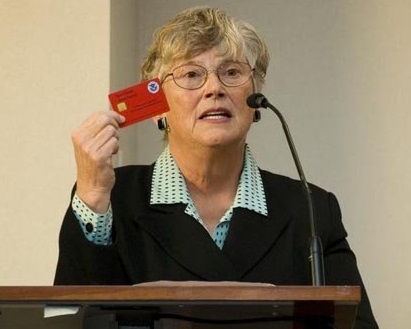 In
a debate as important as immigration, which impacts most aspects of
public policy, we should welcome all honest voices. During these last
months and weeks we have seen frequent rounds of name calling,
statistical exaggerations, and stigmatization of opponents, which
contribute little and might even obscure the need for sound reforms.
These divisions exist also among those working at think tanks that share
a devotion for the free enterprise system.
In
a debate as important as immigration, which impacts most aspects of
public policy, we should welcome all honest voices. During these last
months and weeks we have seen frequent rounds of name calling,
statistical exaggerations, and stigmatization of opponents, which
contribute little and might even obscure the need for sound reforms.
These divisions exist also among those working at think tanks that share
a devotion for the free enterprise system.Almost everyone in the free-market conservative side applauded the work of Hernando de Soto of the Instituto Libertad y Democracia in Peru. De Soto popularized the use of the term “informal” or “extra-legal” to describe those who conduct economic activities without the required government licenses. He avoided the use of the word “criminal” or “illegal” when referring to street vendors and other micro-enterprises. Conservatives seldom use the language of illegality and criminality when referring to those who work outside the license system. They usually save those harsh words for those who not only are informal but also violate private property or other human rights. As an answer to the problem they usually push for reducing the barriers of entry to business by lowering regulations and the costs of permits. When discussing immigration, however, many conservatives take a complete opposite stance.
US: Relaxed Immigration Barriers Correlate With Powerful Economic Growth – by Ralph Benko
US: Relaxed Immigration Barriers Correlate With Powerful Economic Growth – by Ralph Benko
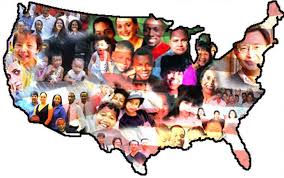 Relaxed
immigration correlates with a thriving America. Few remember that most
of our grandparents (including those of this columnist) who immigrated
to America did so freely. They just showed up and came right in without
confronting a crazy quilt of laws or phalanx of DHS agents. Relaxed
immigration is part and parcel with economic growth.
Relaxed
immigration correlates with a thriving America. Few remember that most
of our grandparents (including those of this columnist) who immigrated
to America did so freely. They just showed up and came right in without
confronting a crazy quilt of laws or phalanx of DHS agents. Relaxed
immigration is part and parcel with economic growth.It was not until the 1920s that quantitative immigration laws were adopted. Previously only “illiterates, persons of psychopathic inferiority, men as well as women entering for immoral purposes, alcoholics, stowaways, and vagrants” (and, shamefully and to our detriment, Chinese and Japanese) were excluded.
In the context of this policy immortalized by Emma Lazarus as “Give me your tired, your poor, Your huddled masses yearning to breathe free, The wretched refuse of your teeming shore. Send these, the homeless, tempest-tost to me, I lift my lamp beside the golden door,” America thrived.
US: The ignorance and hypocrisy behind oil export bans – by Paul Driessen
US: The ignorance and hypocrisy behind oil export bans – by Paul Driessen
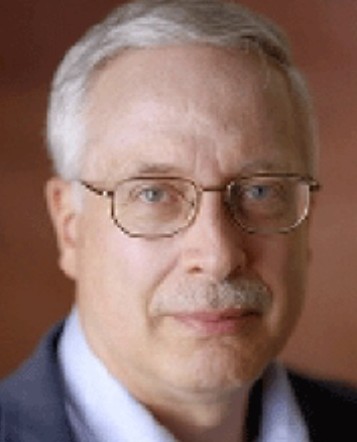 Help consumers, security, environment by eliminating prohibition on exporting US oil and gas.
Help consumers, security, environment by eliminating prohibition on exporting US oil and gas.US oil and gas production was already declining, when the 1973 Arab oil embargo sent oil and gasoline prices skyrocketing and created block-long lines at gas stations. Increased domestic production could have eased the supply and price crunch, but the 1969 Santa Barbara oil spill had resulted in congressional leasing and drilling moratoriums on federal offshore and onshore lands.
Though it voted 50-49 to build the Alaska pipeline, Congress refused to allow more drilling. Instead, it legislated a 55-mph speed limit, mileage standards for vehicles and a ban on exporting domestically produced crude oil. The speed limit was eventually lifted, but drilling bans expanded, the mileage rules tightened, the export ban remained, and the United States increasingly imported more oil at higher prices.
US: Crimea, Venice, Colorado Are Saying That The Era Of Big Government Is Over – by Ralph Benko
US: Crimea, Venice, Colorado Are Saying That The Era Of Big Government Is Over – by Ralph Benko
 Crimea. Venice. Scotland. Quebec. Catalonia. Colorado.
Crimea. Venice. Scotland. Quebec. Catalonia. Colorado.Crimea’s vote, a popular vote of no confidence in Kiev, to leave Ukraine (and rejoin Russia) is in some ways unique.
In other ways it appears part of an emerging, worldwide, trend.
Scotland will vote next September on whether to disunite from the United Kingdom. Much to London’s dismay.
Parti Québécois is quite likely to take control of the Quebec legislature within a few weeks. PQ’s core mission, albeit currently soft pedaled, has been to establish Quebec as a sovereign nation. In 1995 it came within millimeters of winning a referendum to do just that..
Catalonia proposes a November 9 vote to separate from Spain. Madrid considers this illegal and has promised to quash the voting process. Yet the proposal is an indicator of public disaffection with Madrid.
US: Away From Socialism: Mario Vargas Llosa Joins The Mont Pelerin Society – by Alejandro Chafuen
US: Away From Socialism: Mario Vargas Llosa Joins The Mont Pelerin Society – by Alejandro Chafuen
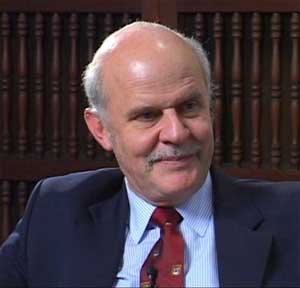 The Mont Pelerin Society (MPS),
has been credited as being one of the key groups that succeeded in
moving the world away from socialism and into a more liberal world
order. In the move away from socialism, few can be such good witnesses
as Nobel Laureate Mario Vargas Llosa. He recently became a prominent new
member of MPS.
The Mont Pelerin Society (MPS),
has been credited as being one of the key groups that succeeded in
moving the world away from socialism and into a more liberal world
order. In the move away from socialism, few can be such good witnesses
as Nobel Laureate Mario Vargas Llosa. He recently became a prominent new
member of MPS.Few organizations can show a history with so many Nobel Laureates. Vargas Llosa, however, is the first from the world of literature. MPS was founded by F.A. Hayek in 1947, who later became a Nobel Laureate in 1974. Other Nobel Laureates in the society included Milton Friedman, Ronald Coase, James Buchanan, and George Stigler. They are deceased, but they left an enormous legacy. Vernon Smith and Gary Becker are still going strong and are active members.
US: Will the Supreme Court permit EPA climate fraud? – by Paul Driessen
US: Will the Supreme Court permit EPA climate fraud? – by Paul Driessen
 If it does, the impacts on our lives, livelihoods, liberties and living standards will be enormous.
If it does, the impacts on our lives, livelihoods, liberties and living standards will be enormous.The U.S. Supreme Court recently heard oral arguments in Utility Air Regulatory Group v. Environmental Protection Agency. The case will determine how far EPA can extend its regulatory overreach, to control “climate changing” carbon dioxide from power plants and other facilities – by ignoring the Constitution’s “separation of powers” provisions, rewriting clear language in the Clean Air Act, and disregarding laws that require the agency to consider both the costs and benefits of its regulations and what it is regulating.
Put more bluntly, the Court will decide whether EPA may deceive and defraud the American people, by implementing regulations that have no basis in honest science and will be ruinous to our economy. It is the most important energy, economic and environmental case to come before the Court it in decades.
Suppose a used car dealership routinely rolled back speedometer mileage, deleted customer complaints from its website, posted fabricated compliments, and lied about defects and accidents, to sell more cars. Or a manufacturer misstated its sales and bottom line, failed to mention major safety violations and fines, and made false claims about new product lines, to attract investors and inflate stock prices?
US: Greener than “green” – by Deroy Murdock
US: Greener than “green” – by Deroy Murdock
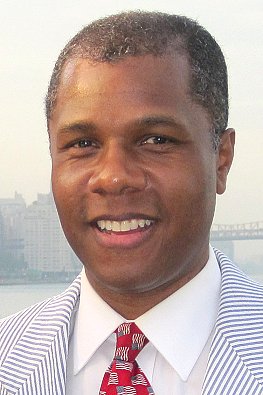 Fracking is friendly to protected species and mosquito-devouring bats.
Fracking is friendly to protected species and mosquito-devouring bats.Williamsport, PA — A constant, mild hiss.
That was my chief observation when I returned to Anadarko Petroleum’s Landon Pad A, a natural-gas site in Lycoming County, PA. October’s quietude was totally unlike the cyclone of equipment, personnel and activity that had dominated this spot just four months before, when Anadarko and the American Petroleum Institute hosted journalists and policy analysts here.
Back then, engineers used a pressurized blend of 90% water, 9.5% sand, and 0.5% chemicals to crack subterranean shale deposits and awaken natural gas that has slumbered since the dinosaurs died. This hydraulic fracturing, or “fracking,” occurs some 6,000 feet underground. This is 5,000 feet beneath the water table – deep enough to bury three Empire State Buildings.
Yellen Concerned Fed Model Fails to Predict Price Moves

Janet Yellen, chair of the U.S. Federal Reserve, listens during an open
meeting of the Board of Governors of the Federal Reserve in Washington.
Behind her disquiet: the failure of the models to foresee the path of prices in the U.S. during the last recession and its aftermath and in Japan during its deflationary period from 1998 to 2012. U.S. inflation has been higher than the simulations suggested, while Japanese price declines proved more persistent.
Yellen alluded to her concerns in a speech last week, saying the Fed has to “watch carefully” to see if inflation picks up as the central bank projects -- and hopes -- during the next few years.
Republican Leaders Should Be Consistent on ‘Imperial Presidency’
Republican Leaders Should Be Consistent on ‘Imperial Presidency’
“‘Imperial Presidency’ Becomes a Rallying Cry for Republicans,” the New York Times headline blared in a story in the April 1 print edition.
But the Grey Lady wasn’t fooling: it’s the GOP’s “unified anthem” for
2014, reflecting “conservative philosophy about the appropriate role of
government.”
House Majority Leader Eric Cantor, R-Va., is leading the charge. In March, he released an updated white paper on “The Imperial Presidency,” and helped shepherd the adroitly acronymed ENFORCE the Law Act (for “Executive Needs to Faithfully Observe and Respect Congressional Enactments”) through the House.
The bill, which tries to compel the courts to rule on issues like the president’s repeated flouting of Obamacare deadlines, was necessary, Cantor insisted, because “the president’s dangerous search for expanded power appears to be endless.”
House Majority Leader Eric Cantor, R-Va., is leading the charge. In March, he released an updated white paper on “The Imperial Presidency,” and helped shepherd the adroitly acronymed ENFORCE the Law Act (for “Executive Needs to Faithfully Observe and Respect Congressional Enactments”) through the House.
The bill, which tries to compel the courts to rule on issues like the president’s repeated flouting of Obamacare deadlines, was necessary, Cantor insisted, because “the president’s dangerous search for expanded power appears to be endless.”
Gujarat Is India’s Top State in Economic Freedom
Gujarat Is India’s Top State in Economic Freedom
Does Narendra Modi actually have a great Gujarat model, or just well packaged hype? Critics say that Gujarat has grown fast, but some others have grown faster.The Raghuram Rajan Committee on development indicators says Gujarat’s social indicators are just middling. Looking at children of class 3-5 who can do subtraction, Gujarat has declined from 22nd among 28 states in 2006 to 23rd in 2012. However, economist Arvind Panagariya argues that Gujarat has made substantial social progress under Modi, starting from a low base.
The Shocking Secret Behind Obamacare Enrollment Numbers
The Shocking Secret Behind Obamacare Enrollment Numbers
Barack Obama wants you to know he enrolled 7.5 million Americans through Obamacare’s health insurance Exchanges. What he doesn’t want you to know is how.Federal courts may soon rule that President Obama induced the majority of those enrollees to enroll by offering them taxpayer dollars he has no legal authority to spend.
If the courts put a stop to that unauthorized spending, a majority of Exchange enrollees would suddenly face the full cost of Obamacare coverage, and enrollments would plummet.
Under the Patient Protection and Affordable Care Act, states have the option of establishing an Exchange themselves, or letting the federal government do it. The Act also authorizes subsidies that can require taxpayers to cover nearly the entire premium for Exchange plans. Among the eligibility criteria for those subsidies is a requirement that recipients enroll “through an Exchange established by the State.”
Walgreen Could Benefit from Moving to Europe
Walgreen Could Benefit from Moving to Europe
Some shareholders at Walgreen Co., based in Deerfield, are pressing
the company to move its headquarters to Europe, where it owns nearly
half of Swiss pharmacy giant Alliance Boots. Should Walgreen move?
Walgreen Co.’s purchase of Alliance Boots raises the question of whether the expanded company should be domiciled in the United States or overseas.
Many shareholders want a “corporate inversion” with the company based in Europe, possibly Switzerland. Some think this would allow Walgreen to avoid paying tax on American profits to Uncle Sam. This is not true. All companies, whether domiciled in America or elsewhere, pay tax to the IRS on income earned in the U.S.
But there is a big tax advantage if Walgreen becomes a Swiss company. The U.S. imposes “worldwide taxation,” which means American-based companies not only pay tax on income earned at home but also are subject to tax on income earned overseas. Most other nations, including Switzerland, use “territorial taxation,” which is the common-sense approach of only taxing income earned inside national borders.
Walgreen Co.’s purchase of Alliance Boots raises the question of whether the expanded company should be domiciled in the United States or overseas.
Many shareholders want a “corporate inversion” with the company based in Europe, possibly Switzerland. Some think this would allow Walgreen to avoid paying tax on American profits to Uncle Sam. This is not true. All companies, whether domiciled in America or elsewhere, pay tax to the IRS on income earned in the U.S.
But there is a big tax advantage if Walgreen becomes a Swiss company. The U.S. imposes “worldwide taxation,” which means American-based companies not only pay tax on income earned at home but also are subject to tax on income earned overseas. Most other nations, including Switzerland, use “territorial taxation,” which is the common-sense approach of only taxing income earned inside national borders.
The Global Warming Apocalypses That Didn’t Happen
By Richard W. Rahn
“The Arctic Ocean is warming up, icebergs are growing scarcer, and in
some places the seals are finding the water too hot. Reports from
fishermen, seal hunters, and explorers all point to a radical change in
climate conditions and hitherto unheard-of temperatures in the Arctic
zone. Exploration expeditions report that scarcely any ice has been met
as far north as 81 degrees 29 minutes. Within a few years it is
predicted that due to the ice melt the sea will rise and make most
coastal cities uninhabitable.” — from an Associated Press report
published in The Washington Post on Nov. 2, 1922.
You may have noticed that the predicted disaster 92 years ago did not happen, nor have other predicted catastrophes from the global-warming crowd.
On July 5, 1989, Noel Brown, then the director of the New York office of the United Nations Environment Program, warned of a “10-year window of opportunity to solve” global warming “entire nations could be wiped off the face of Earth by rising sea levels if the global-warming trend is not reversed by the year 2000. Coastal flooding and crop failures would create an exodus of ‘eco-refugees,’ threatening political chaos.”
You may have noticed that the predicted disaster 92 years ago did not happen, nor have other predicted catastrophes from the global-warming crowd.
On July 5, 1989, Noel Brown, then the director of the New York office of the United Nations Environment Program, warned of a “10-year window of opportunity to solve” global warming “entire nations could be wiped off the face of Earth by rising sea levels if the global-warming trend is not reversed by the year 2000. Coastal flooding and crop failures would create an exodus of ‘eco-refugees,’ threatening political chaos.”
We Can’t Save the Environment without Freedom
By Randal O'Toole
The first Earth Day took place in 1970, when I was a high school
senior, and that day set the course of my life for the next 25 years.
Convinced of the need to protect the environment and realizing that
forests were a key part of the environment in my home state of Oregon, I
elected to attend forestry school, graduating in 1974.
Over the next two decades, I helped almost every major environmental group in their efforts to save public forests from what we thought were the rapacious hands of timber companies. But I soon realized that the real problem was that Congress had inadvertently given public land agencies budgetary incentives to lose money harming the environment, and disincentives to either make money or do environmental good.
This insight helped me see that creating markets for all resources would allow them to compete on a level playing field. Recreation fees, for example, could reward public land managers for protecting things that recreationists care about, such as scenery, diverse wildlife habitat, and clean water. Though economists estimated that recreation was worth more than any other public land resource, Congress didn’t allow managers to charge for most recreation.
Over the next two decades, I helped almost every major environmental group in their efforts to save public forests from what we thought were the rapacious hands of timber companies. But I soon realized that the real problem was that Congress had inadvertently given public land agencies budgetary incentives to lose money harming the environment, and disincentives to either make money or do environmental good.
This insight helped me see that creating markets for all resources would allow them to compete on a level playing field. Recreation fees, for example, could reward public land managers for protecting things that recreationists care about, such as scenery, diverse wildlife habitat, and clean water. Though economists estimated that recreation was worth more than any other public land resource, Congress didn’t allow managers to charge for most recreation.
Let Interns Be Interns
By Walter Olson
With eyes wide open, students with many options have long sought out
voluntary unpaid internships because they’re an arrangement that can
rationally benefit both sides.
In an Auburn University working paper last month, four economists reported on a study that found internship experience was associated with a 14 percent increase in the rate at which prospective employers request interviews of job seekers. As a predictor of the rate of callbacks, an internship on the resume actually worked much better than a business degree itself.
Yet class-action lawyers and labor activists now attack internships as — in the trendy, elastic new term — “wage theft.” These same lawyers and activists go to court demanding millions of dollars over arrangements both sides understood perfectly well at the time to be unpaid — and do not call shakedowns like these “theft.”
In an Auburn University working paper last month, four economists reported on a study that found internship experience was associated with a 14 percent increase in the rate at which prospective employers request interviews of job seekers. As a predictor of the rate of callbacks, an internship on the resume actually worked much better than a business degree itself.
Yet class-action lawyers and labor activists now attack internships as — in the trendy, elastic new term — “wage theft.” These same lawyers and activists go to court demanding millions of dollars over arrangements both sides understood perfectly well at the time to be unpaid — and do not call shakedowns like these “theft.”
Measuring Misery around the World
By Steve H. Hanke
The Great Recession grinds on. And as it does, politicians of all
stripes ask, usually behind closed doors, "Just how miserable are our
citizens?" The chattering classes offer a variety of opinions. As it
turns out, there is a straightforward way to measure what is termed the
misery index.
The late Arthur Okun, a distinguished economist who served as chairman of the President’s Council of Economic Advisers during President Johnson’s administration, developed the original misery index for the United States. Okun’s index is equal to the sum of the inflation and unemployment rates.
Harvard Professor Robert Barro amended the misery index by also including the 30-year government bond yield and the output gap for real GDP. Barro used his index to measure the change in misery during a president’s term.
The late Arthur Okun, a distinguished economist who served as chairman of the President’s Council of Economic Advisers during President Johnson’s administration, developed the original misery index for the United States. Okun’s index is equal to the sum of the inflation and unemployment rates.
Harvard Professor Robert Barro amended the misery index by also including the 30-year government bond yield and the output gap for real GDP. Barro used his index to measure the change in misery during a president’s term.
No hay comentarios.:
Publicar un comentario